1996/97: narrow win
It's matchday 29 on Friday, 25 April 1997 and the run-in at the end of the season has started. Bayer 04 are three points behind league leaders Bayern Munich in second place and are set to entertain Werder Bremen who have had a mixed season. The Werkself take charge of proceedings straightaway and push Bremen back in their own half. After Ulf Kirsten opened the scoring on 23 minutes, his opponent Jens Lellek committed a bad foul on our centre forward eight minutes later and the referee Dr Markus Merk showed him the red card.


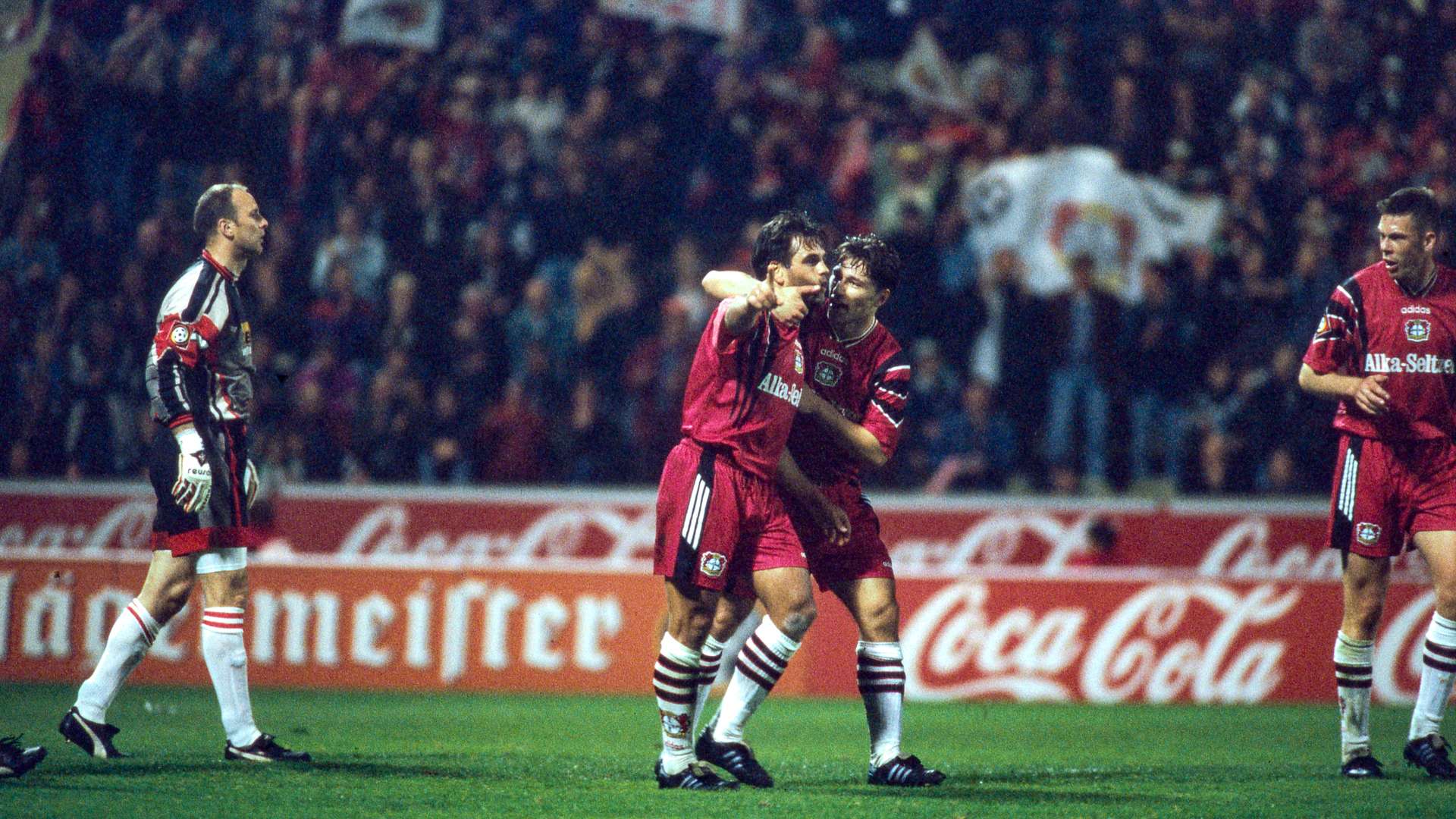

Bremen then formed a defensive wall in front of their box and chances were carelessly missed. The result appeared to be sealed after the second strike from our record goalscorer with a penalty but a goal from Werder Bremen caused unnecessary concern. The match ended in a deserved win for Bayer 04 who kept Bayern under pressure.
2001/02: narrow defeat
Bayer 04 are top of the table with a five-point lead and three games to play. With two home games against Werder Bremen and Hertha Berlin and an away fixture against relegation threatened FC Nürnberg in between, there is great confidence under the Bayer Cross that the Bundesliga 'Schale' can finally be brought to Leverkusen.
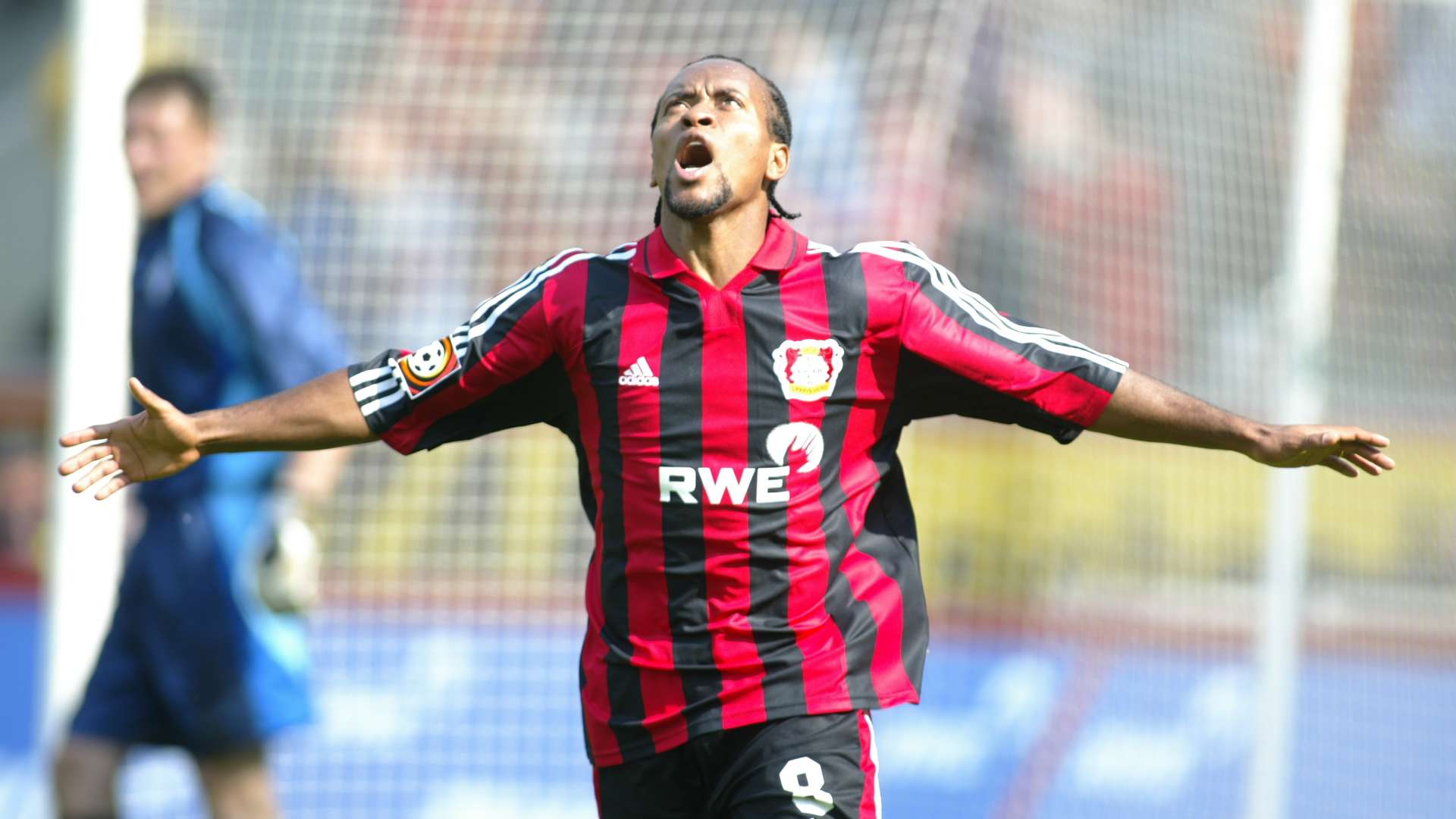



However, Werder Bremen needed every point in the race for a UEFA Cup place and they disrupted the Bayer team's flow with aggressive pressing from the start. The first setback on five minutes: Krisztian Lisztes opened the scoring for Werder with a hopeful long-range effort. Bayer 04 were able to apply more pressure after the half-hour mark and Zé Roberto netted the equaliser on 32 minutes. There was great celebration in the stands when referee Alfons Berg awarded a questionable penalty seven minutes later. But the Bayer 04 fans soon fell silent. The otherwise so reliable penalty taker Jörg Butt had his spot kick saved by the Bremen keeper Frank Rost. But nobody was unduly worried by the 1-1 scoreline at half-time.
But there was disquiet after an hour when Bremen went ahead again, particularly as the Werkself were pressing but unable to create any chances. At the end of the day, our team dropped three important points in the title race but still had two games to play to reach the finishing line with a two-point cushion.
Here are the TV highlights of the game against Werder Bremen
Related News
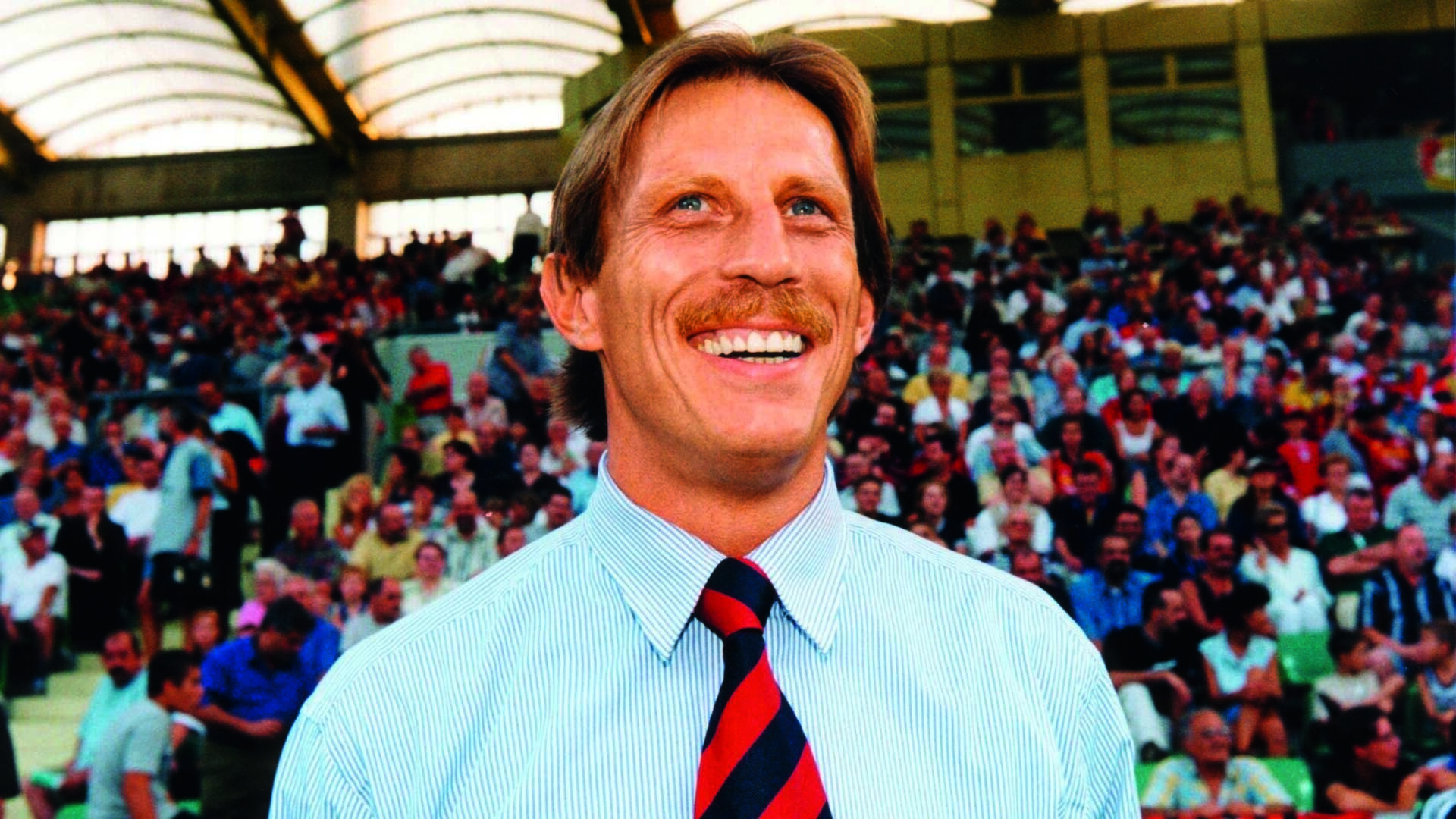
Legend: Christoph Daum - The man who taught us to want
Christoph Daum was born on 24 October 1953 in Zwickau. As a child, he moved to West Germany with his mother and grew up in Duisburg. He developed a great enthusiasm for football at an early age, even though it soon became clear that his future lay less on the pitch than on the sidelines. Even at a young age, his passion for analysing, explaining and improving things became apparent.
Show more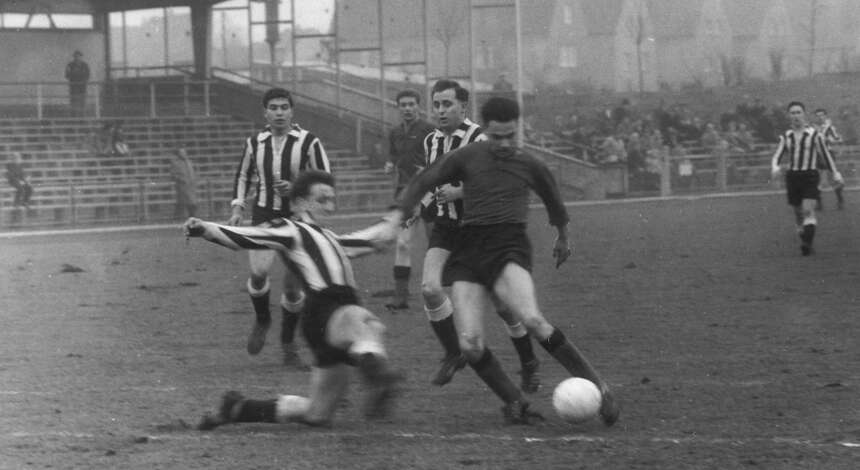
From the archives: 65 years ago - Another victory at last
When the Bayer 04 players celebrated Christmas in 1960, they spent the winter in second place in the Oberliga West 2 on 20 points - but already five points behind leaders Schwarz-Weiß Essen. However, coach Erich Garske's team are struggling to get back on track in the new year. A goalless draw against Bonner FV at home at the Ulrich Haberland Stadium was followed by a 2-1 away defeat in Erkenschwick. The following home game also yielded just one point. As a result, the team's promotion ambitions dwindled to a minimum, as the gap to the coveted spot has now grown to a challenging ten points.
Show more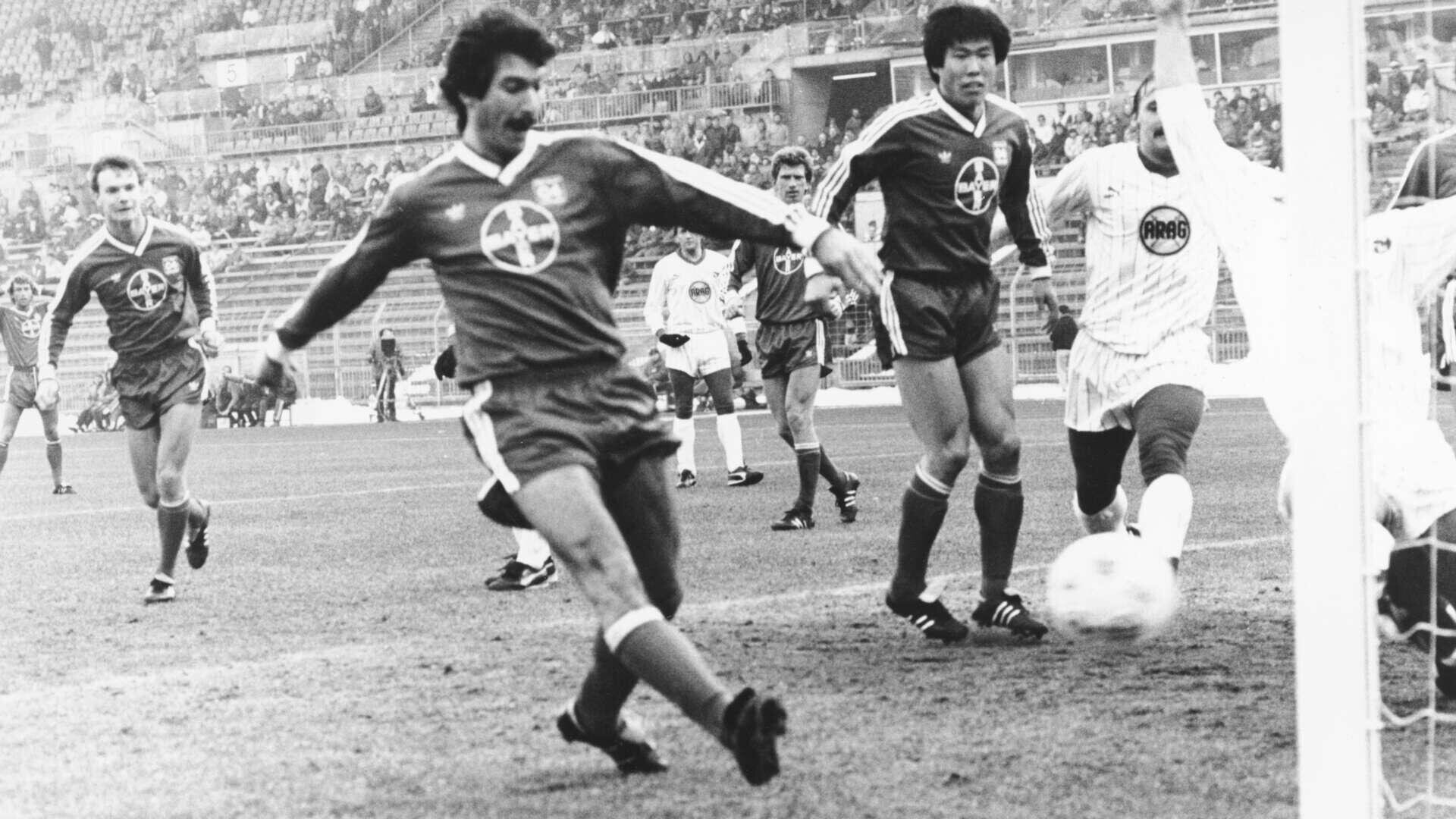
Goals of the month: From Waas to Tapsoba
In this video you can see impressive and important goals in Bayer 04 history from the month of February. It's not always about the beauty of the goals, but also a reminder of special games and players.
Show more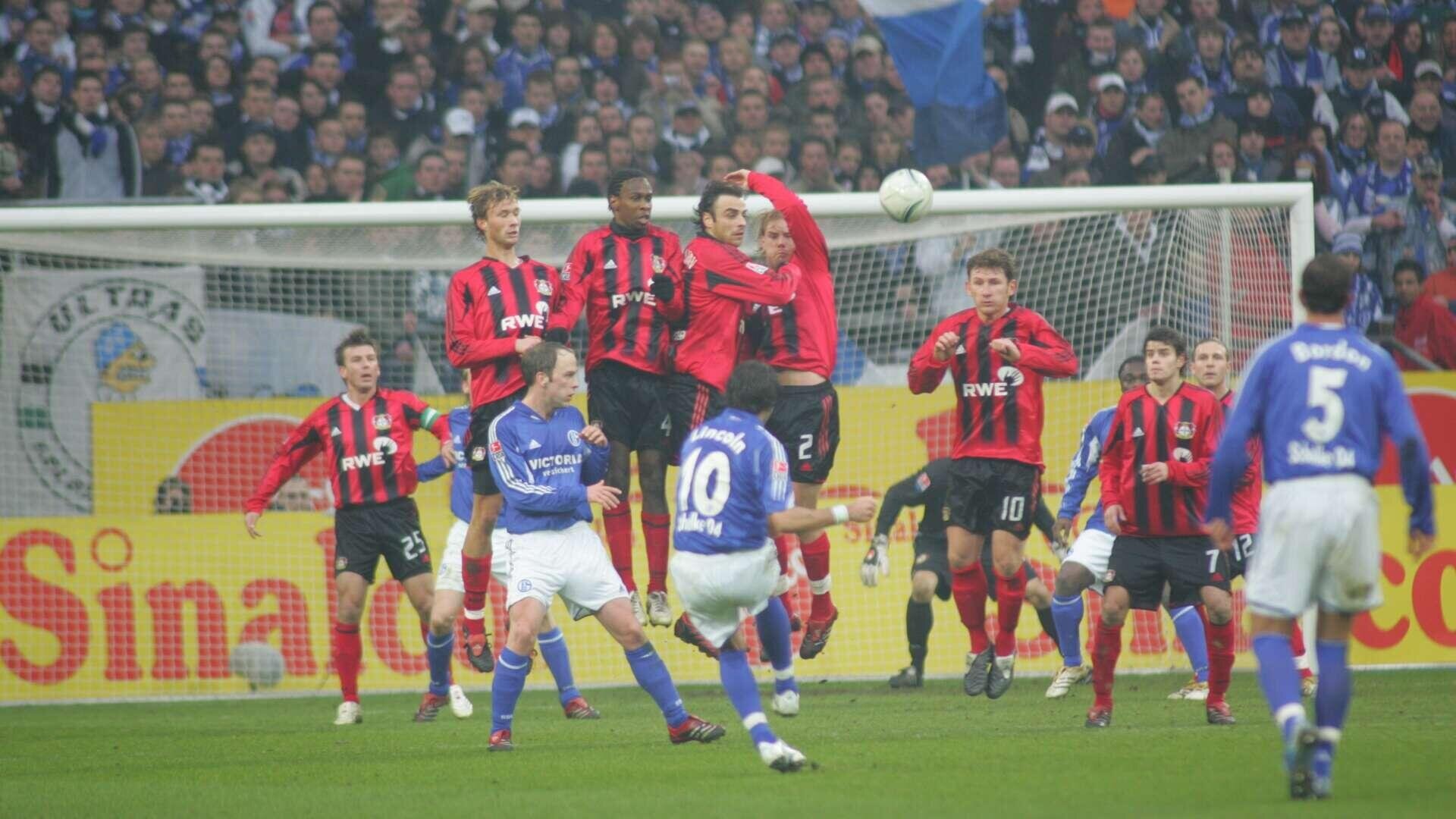
Match of the month: 20 years ago - A game of goals galore
It is 11 February 2006 and Schalke 04 and the Werkself kick off at 3.30 p.m. in a match that ends up being historic - at least from a Bayer 04 perspective.
Show more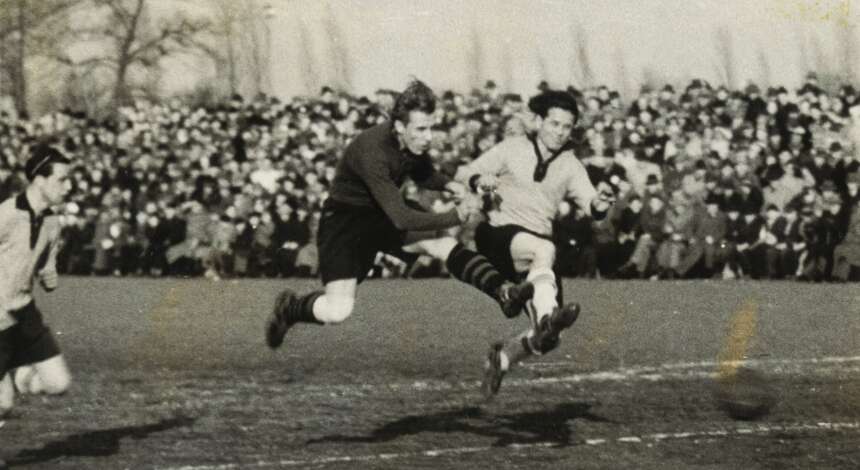
History: 75 years ago - The 1950/51 season (February)
As league leaders, the Werkself welcomed the relegation-threatened team from Rhenania Würselen. On 4 February 1951, 5,000 spectators line the touchlines despite the Sunday carnival parades. And they see a home team that is superior on the pitch. Without Theo Kirchberg, who was ill, and Emil Becks, who was suspended, the hosts attacked the opposing goal from the start. Battling against a strong wind in the first half, Bayer 04 created chance after chance, but were repeatedly thwarted by the Würselen goalkeeper. With the score at 0-0 at half-time, Karl Heinz Spikofski tried his luck on 55 minutes and hammered the ball into the opposition net from 20 metres out. Rhenania can no longer counterattack. The siege of the Würselen penalty area continued right to the end, but the game ended in a narrow 1-0 win.
Show more